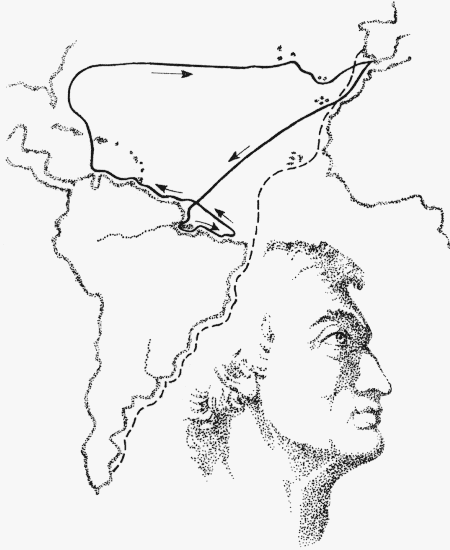Amerigo Vespucci
Today, meet our national namesake. The University of Houston's College of Engineering presents this series about the machines that make our civilization run, and the people whose ingenuity created them.
Our country's named after the Italian navigator Amerigo Vespucci instead of the Italian navigator Christopher Columbus. But why? Who was Amerigo Vespucci, and what did he do?
He was an Italian merchant, born in 1454 in Florence and employed by the Medicis. They sent him to look after their ship-outfitting business, which operated out of Seville, about the time Columbus made his first voyage. In fact, the business had a part in outfitting Columbus's third voyage.
Vespucci finally outfitted his own voyage in quest of the passage to the Indian subcontinent that had eluded Columbus. He sailed in 1499 -- seven years after Columbus first landed in the West Indies. Vespucci made two voyages between 1499 and 1502 and possibly a third one in 1503.
During his first voyage he explored the northern coast of South America to well beyond the mouth of the Amazon. He gave names like "Gulf of the Ganges," and other Asian place-names he knew about, to the things he saw. He also made significant improvements in navigational techniques. During this trip he predicted the earth's circumference to within 50 miles.
But the big breakthrough came on Vespucci's second trip. And that was the realization that what he was looking at was not India at all, but an entirely new continent. He verified the fact by following the coast of South America down to within 400 miles of Tierra del Fuego. Columbus found the new world, but Vespucci was the man who recognized that it was a new world.
And who wrote Vespucci's Christian name on the maps? The King of Spain? Our founding fathers? Vespucci himself? No -- it was none of these. We were given our name by an obscure German clergyman and amateur geographer named Waldseemuller. Waldseemuller was a member of a little literary club that published an introduction to cosmology in 1507. In it he wrote of the new land mass that Vespucci had explored:
I see no reason why anyone should justly object to calling this part ... America, after Amerigo [Vespucci], its discoverer, a man of great ability.
The name stuck, and when a second huge land mass was discovered to the north, the names North and South America were applied to the two continents.
All this leads us to ask, "Who really discovered America?" Was it the person who first found it or the person who first recognized it for what it was? Perhaps I'd better leave you to decide that question.
I'm John Lienhard, at the University of Houston, where we're interested in the way inventive minds work.
(Theme music)
Wilford, J.N., The Mapmakers. New York: Vintage Books, 1982.
See your Encyclopaedia Britannica for more on Vespucci.
This episode has been extensively modified in Episode 1350.

(Drawing by Maria Zsigmond-Baca. By permission of Peter Gordon.)
Vespucci and his two voyages -- the first as a solid line, the second as a dashed line